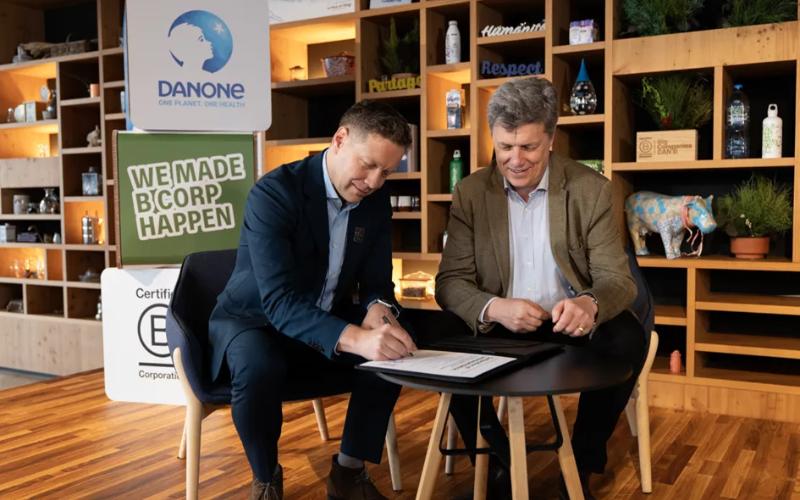Impact of the UK's New Border Model on Dairy Imports from Europe: Increased Charges and Regulatory Challenges
As the UK's post-Brexit import controls come into effect on January 31, 2024, concerns arise about the potential consequences for dairy imports from Europe. The Border Target Operating Model (BTOM), encompassing security, control, and safety rules for import goods, is set to introduce Sanitary and Phytosanitary (SPS) checks on animal products, live animals, plants, and agri-food items.

While this aims to create a level playing field for EU exporters, the additional costs and regulatory burdens may pose challenges to the entire supply chain.
DairyReporter reached out to the Institute of Export & International Trade to assess the potential friction and red tape introduced by these new rules. Marco Forgione, the Institute's Director General, highlighted that many dairy products, including cheeses with raw milk, fall into the medium-risk category. Exporters from the EU will require an Export Health Certificate (EHC) and notification in the EU's TRACES NT system, incurring costs ranging from €140 to €260 per shipment.
In the UK, importers must arrange notification in the Import of Products, Animals, Food, and Feed system (IPAFFS) with a Common Health Entry Document, referencing it in the Customs Declaration Service. However, the complexity of these procedures may lead some small EU businesses to consider suspending or halting shipments to the UK or changing their distribution methods.
Some aspects of the process won't be enforceable until after April 30, allowing officials to assess the system's effectiveness. After this date, goods must travel through designated border control points, incurring additional charges such as the Common User Charge. The exact costs and locations of these points are still unknown.
The final implementation stage, scheduled for October 31, 2024, will require Safety and Security declarations for all EU imports. Forgione expressed concerns about whether the haulage industry would be ready for these changes, emphasizing the added time and cost to the supply chain.
UK officials are continually refining the rules, introducing Trusted Trader schemes and easements, like reducing pre-notifications from 24 to 4 hours. However, these adjustments will vary among Port Health Authorities based on their capacity. While the UK government is running Trusted Trader scheme pilots, they won't be operational by April 30.
Forgione advised exporters and importers to communicate effectively, understand their responsibilities, and stay updated on the latest information as April 30 approaches, emphasizing the need for clarity in various areas.
DairyReporter reached out to the Institute of Export & International Trade to assess the potential friction and red tape introduced by these new rules. Marco Forgione, the Institute's Director General, highlighted that many dairy products, including cheeses with raw milk, fall into the medium-risk category. Exporters from the EU will require an Export Health Certificate (EHC) and notification in the EU's TRACES NT system, incurring costs ranging from €140 to €260 per shipment.
In the UK, importers must arrange notification in the Import of Products, Animals, Food, and Feed system (IPAFFS) with a Common Health Entry Document, referencing it in the Customs Declaration Service. However, the complexity of these procedures may lead some small EU businesses to consider suspending or halting shipments to the UK or changing their distribution methods.
Some aspects of the process won't be enforceable until after April 30, allowing officials to assess the system's effectiveness. After this date, goods must travel through designated border control points, incurring additional charges such as the Common User Charge. The exact costs and locations of these points are still unknown.
The final implementation stage, scheduled for October 31, 2024, will require Safety and Security declarations for all EU imports. Forgione expressed concerns about whether the haulage industry would be ready for these changes, emphasizing the added time and cost to the supply chain.
UK officials are continually refining the rules, introducing Trusted Trader schemes and easements, like reducing pre-notifications from 24 to 4 hours. However, these adjustments will vary among Port Health Authorities based on their capacity. While the UK government is running Trusted Trader scheme pilots, they won't be operational by April 30.
Forgione advised exporters and importers to communicate effectively, understand their responsibilities, and stay updated on the latest information as April 30 approaches, emphasizing the need for clarity in various areas.











